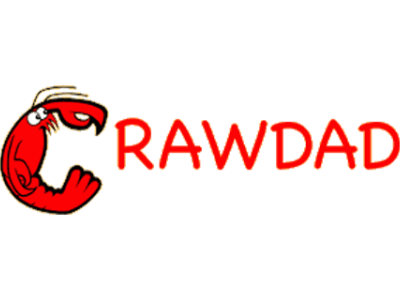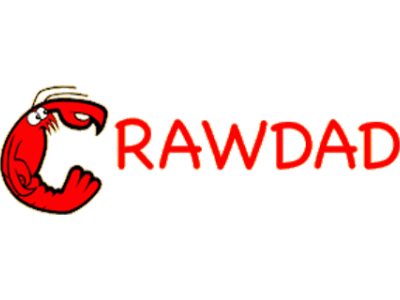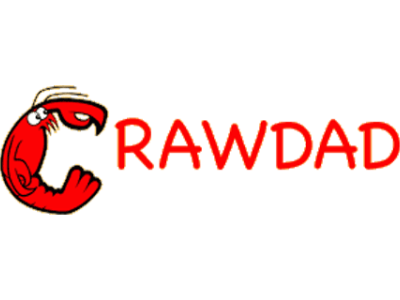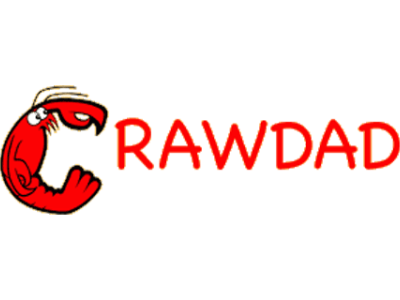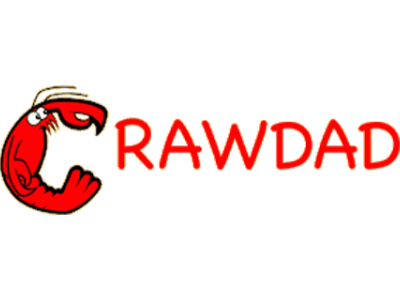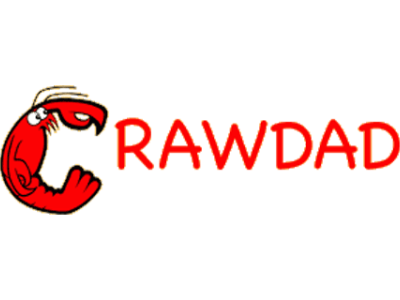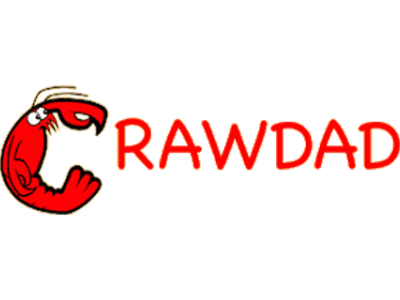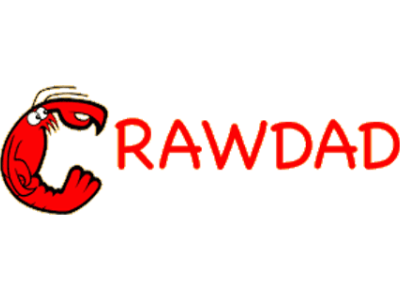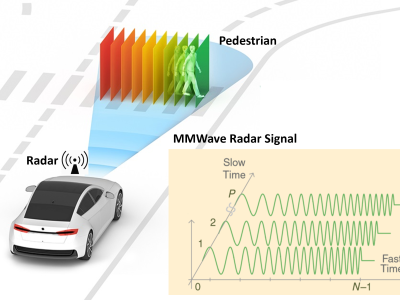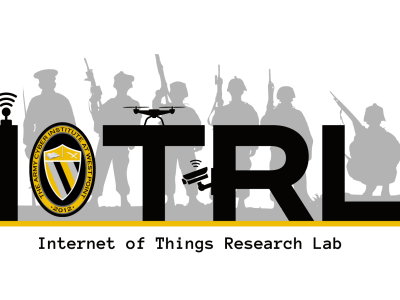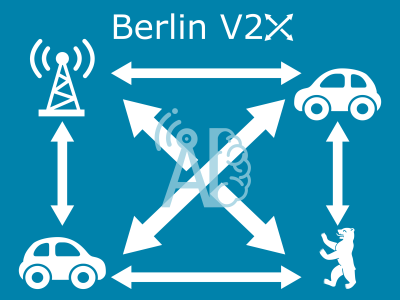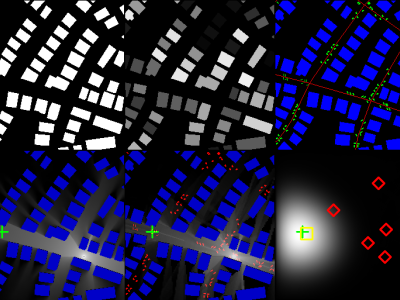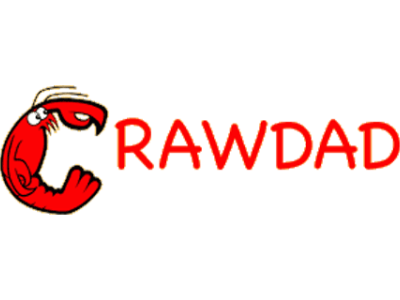CRAWDAD tools/simulate/uoi/adyton
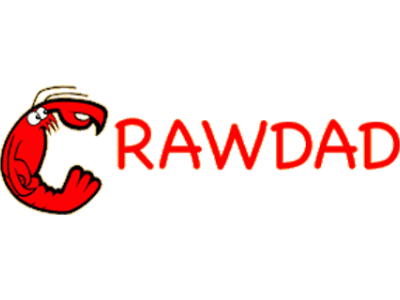
- Citation Author(s):
-
Nikolaos Papanikos (Dept. of Computer Science and Engineering, University of Ioannina, Greece)Dimitrios-Georgios Akestoridis (University of Ioannina, Greece)Evangelos Papapetrou (University of Ioannina, Greece)
- Submitted by:
- CRAWDAD Team
- Last updated:
- DOI:
- 10.15783/C7BG6V
 195 views
195 views
- Categories:
Abstract
Adyton: A Network Simulator for Opportunistic Networks
Adyton is an event-driven network simulator, written in C++, for Opportunistic Networks (a.k.a. Delay-Tolerant Networks) that is capable of processing contact traces. The Adyton simulator supports a plethora of routing protocols and real-world contact traces, while also providing several congestion control mechanisms and buffer management policies.
File: adyton.zip
Website: https://github.com/npapanik/Adyton/
Build:
Requirements
Adyton currently supports only Linux-based systems with a proper C++ compiler.
All the required third-party libraries are included in the ext/ directory.
Compiling
To compile Adyton from source code, just execute the following command inside the src/ directory:
$ make
Execution
After compiling Adyton from source code, you can use the executable file to run a simulation with the default settings with the following command:
$ ./Adyton
Usage:
$ ./Adyton -TRACE (contact trace) -RT (routing protocol) -CC (congestion control mechanism) -SP (scheduling policy) -DP (dropping policy) -DM (deletion mechanism) -OUTPUT (output type) -TRAFFIC_TYPE (traffic type) -TRAFFIC_LOAD (number of packets) -TTL (time to live) -BUFFER (buffer size) -REP (replication number) -SPLIT (number of pieces) -SEED (seed number) -PROFILE (text file) -RES_DIR (results directory) -TRC_DIR (trace directory) -BATCH (batch mode)
Options**
(contact trace) options:
| Contact Trace | Arithmetic Value | String Value | | ------------- | ---------------- | ------------ | | Milan PMTR | 1 | MILAN | | MIT Reality Mining | 2 | REALITY | | Intel | 3 | INTEL | | Haggle-Cam | 4 | HAGGLE-CAM | | INFOCOM 2005 | 5 | INFOCOM-2005 | | INFOCOM 2006 | 6 | INFOCOM-2006 | | INFOCOM 2006 (Short Range) | 7 | INFOCOM-2006-SR | | SASSY | 8 | SASSY | | SIGCOMM 2009 | 9 | SIGCOMM-2009 | | Cambridge | 10 | CAMBRIDGE | | Cambridge Students | 11 | CAMBRIDGE-STUDENTS | | RollerNet | 12 | ROLLERNET | | Nodobo | 13 | NODOBO | | UCSD | 14 | UCSD | | UCSD (3 Weeks) | 15 | UCSD-3-WEEKS | | Cabspotting | 16 | CABS | | Cabspotting (2 Days) | 17 | CABS-2-DAYS | | Lyon Primary School | 18 | LYON | | Stanford High School | 19 | STANFORD | | DieselNet | 20 | DIESELNET | | Dartmouth | 21 | DARTMOUTH | | Dartmouth (2 Weeks) | 22 | DARTMOUTH-2-WEEKS | | Debugging | 23 | DEBUG |
(routing protocol) options:
| Routing Protocol | Arithmetic Value | String Value | | ---------------- | ---------------- | ------------ | | Direct Delivery | 1 | DIRECT | | Epidemic Routing | 2 | EPIDEMIC | | PRoPHET | 3 | PROPHET | | SimBet | 4 | SIMBET | | SimBetTS | 5 | SIMBETTS | | Bubble Rap | 6 | BUBBLE | | Spray and Wait | 7 | SNW | | LSF Spray and Wait | 8 | LSF-SNW | | MSF Spray and Wait | 9 | MSF-SNW | | PRoPHET Spray and Wait | 10 | PROPHET-SNW | | LSF Spray and Focus | 11 | LSF-SNF | | Compare and Replicate | 12 | CNR | | Encounter-Based Routing | 13 | EBR | | Delegation Forwarding | 14 | DF | | Coordinated Delegation Forwarding | 15 | COORD | | Optimal Routing | 16 | OPTIMAL |
(congestion control mechanism) options:
| Congestion Control Mechanism | Arithmetic Value | String Value | | ---------------------------- | ---------------- | ------------ | | None | 1 | NONE | | Avoid Overflow | 2 | AVOID-OVERFLOW | | ACC | 3 | ACC | | FairRoute | 4 | FR | | BSA | 5 | BSA | | CACC | 6 | CACC | | CCAF | 7 | CCAF |
(scheduling policy) options:
| Scheduling Policy | Arithmetic Value | String Value | | ----------------- | ---------------- | ------------ | | FIFO | 1 | FIFO | | LIFO | 2 | LIFO | | GRTRMax | 3 | GRTRMAX | | GRTRSort | 4 | GRTRSORT | | HNUV | 5 | HNUV |
(dropping policy) options:
| Dropping Policy | Arithmetic Value | String Value | | --------------- | ---------------- | ------------ | | Drop Front | 1 | DF | | Drop Tail | 2 | DT | | Drop Oldest | 3 | DO | | Drop Youngest | 4 | DY | | Drop Front - Avoid Source Packets | 5 | DF-ASP | | Drop Tail - Avoid Source Packets | 6 | DT-ASP | | Drop Oldest - Avoid Source Packets | 7 | SO-ASP | | Drop Youngest - Avoid Source Packets | 8 | DY-ASP |
(deletion mechanism) options:
| Deletion Mechanism | Arithmetic Value | String Value | | ------------------ | ---------------- | ------------ | | Just TTL | 1 | JUST-TTL | | No Duplicates - Delete Replicas | 2 | NO-DUPS | | No Duplicates - Keep Replicating | 3 | KEEP-REP | | Vaccine | 4 | VACCINE | | Cataclysm | 5 | CATACLYSM |
(output type) options:
| Output Type | Arithmetic Value | String Value | | ----------- | ---------------- | ------------ | | Type 1 | 1 | T1 | | Type 2 | 2 | T2 | | Type 3 | 3 | T3 | | Type 4 | 4 | T4 | | Type 5 | 5 | T5 |
(traffic type) options:
| Traffic Type | Arithmetic Value | String Value | | ------------ | ---------------- | ------------ | | Uniform | 1 | UNIFORM | | Burst | 2 | BURST | | Sample | 3 | SAMPLE | | Predefined | 4 | PREDEFINED |
(number of packets) is the number of packets that will be created.
(time to live) is defined as a timeout value, which specifies when a packet is no longer useful and should be deleted (if (time to live) is equal to 0, the TTL value will be infinite).
(buffer size) is defined as the maximum number of packets that each node can store (if (buffer size) is equal to 0, infinite buffers will be used).
(replication number) is the replicas of each original packet (used only for multi-copy protocols).
(number of pieces) is the number of pieces to split the contact trace file, before uploading to memory.
(seed number) is used by the pseudo-random number generator algorithm.
(text file) is the name of a text file with additional parameter arguments.
(results directory) is the name of the directory that will store the results of the simulation.
(trace directory) is the name of the directory that stores the contact trace files.
(batch mode) options:
* ON = the results will not be printed
* OFF = all the results will be printed
**Default Settings**
* (contact trace) = MILAN
* (routing protocol) = DIRECT
* (congestion control mechanism) = NONE
* (scheduling policy) = FIFO
* (dropping policy) = DF
* (deletion mechanism) = JUST-TTL
* (output type) = Τ1
* (traffic type) = UNIFORM
* (number of packets) = 10000
* (time to live) = 0
* (buffer size)/ = 0
* (replication number) = 1
* (number of pieces) = 100
* (seed number) = time(NULL)
* (text file) = ""
* (results directory) = "../res/"
* (trace directory) = "../trc/"
* (batch mode) = OFF
Instructions:
The files in this directory are a CRAWDAD toolset hosted by IEEE DataPort.
About CRAWDAD: the Community Resource for Archiving Wireless Data At Dartmouth is a data resource for the research community interested in wireless networks and mobile computing.
CRAWDAD was founded at Dartmouth College in 2004, led by Tristan Henderson, David Kotz, and Chris McDonald. CRAWDAD datasets and toolsets are hosted by IEEE DataPort as of November 2022.
Note: Please use the tools in an ethical and responsible way with the aim of doing no harm to any person or entity for the benefit of society at large. Please respect the privacy of any human subjects whose wireless-network activity is captured by the tools and comply with all applicable laws, including without limitation such applicable laws pertaining to the protection of personal information, security of data, and data breaches. Please do not apply, adapt or develop algorithms for the extraction of the true identity of users and other information of a personal nature, which might constitute personally identifiable information or protected health information under any such applicable laws. Do not publish or otherwise disclose to any other person or entity any information that constitutes personally identifiable information or protected health information under any such applicable laws derived from the tools through manual or automated techniques.
Please acknowledge the source of the tools in any publications or presentations reporting use of these tools.
Citation: Nikolaos Papanikos, Dimitrios‑Georgios Akestoridis, Evangelos Papapetrou, tools/simulate/uoi/adyton, https://doi.org/10.15783/C7BG6V, Apr 2016


